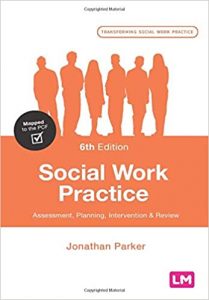I was invited to present at Imperial’s PPI network this week to talk on the theme of inclusivity in PPI (public and patient involvement in research). In the PIER partnership and the newly formed Research Centre for Seldom Heard Voices, we are exploring challenges and opportunities for engaging seldom heard voices in PPI. The basis of our work is that those most affected by health inequalities often have the least opportunity to inform and shape health research. Beresford (2007:310) highlights that if diversity and the barriers that can be in the way of increasing diversity are not addressed, ‘participation is likely to be partial, and reflect broader social divisions and exclusions’ i.e. it will further reinforce health inequalities. This led to some great discussions within the PPI network. The main focus was whether we need to approach PPI differently to engage a more diverse range of voices. From our work at BU, we are finding that we need to think differently about who we involve and how we involve. Only a certain demographic of people will feel comfortable and confident engaging in focus groups, providing feedback on plain English summaries or voicing their opinions in formal settings. These methods and voices are valid but in our experience, are not particularly diverse. Our current work seeks to engage marginalised groups such as rough sleepers in PPI activities by creating outreach opportunities for researchers to ‘go to them’. As a starting point, we challenge the notion of ‘hard to reach’ groups. In our experience, marginalised groups are easier to locate and engage when collaborating with community organisations such as night shelters. The challenge is to change a culture of PPI which relies on the public ‘entering our world’ rather than us seeking a wider range of voices out in the community. It would be good to hear your thoughts and examples. Dr Mel Hughes, mhughes@bournemouth.ac.uk













 3C Event: Research Culture, Community & Can you Guess Who? Friday 20 March 1-2pm
3C Event: Research Culture, Community & Can you Guess Who? Friday 20 March 1-2pm Beyond Academia: Exploring Career Options for Early Career Researchers – Online Workshop
Beyond Academia: Exploring Career Options for Early Career Researchers – Online Workshop UKCGE Recognised Research Supervision Programme: Deadline Approaching
UKCGE Recognised Research Supervision Programme: Deadline Approaching SPROUT: From Sustainable Research to Sustainable Research Lives
SPROUT: From Sustainable Research to Sustainable Research Lives BRIAN upgrade and new look
BRIAN upgrade and new look ECR Funding Open Call: Research Culture & Community Grant – Apply now
ECR Funding Open Call: Research Culture & Community Grant – Apply now ECR Funding Open Call: Research Culture & Community Grant – Application Deadline Friday 12 December
ECR Funding Open Call: Research Culture & Community Grant – Application Deadline Friday 12 December MSCA Postdoctoral Fellowships 2025 Call
MSCA Postdoctoral Fellowships 2025 Call ERC Advanced Grant 2025 Webinar
ERC Advanced Grant 2025 Webinar Update on UKRO services
Update on UKRO services European research project exploring use of ‘virtual twins’ to better manage metabolic associated fatty liver disease
European research project exploring use of ‘virtual twins’ to better manage metabolic associated fatty liver disease